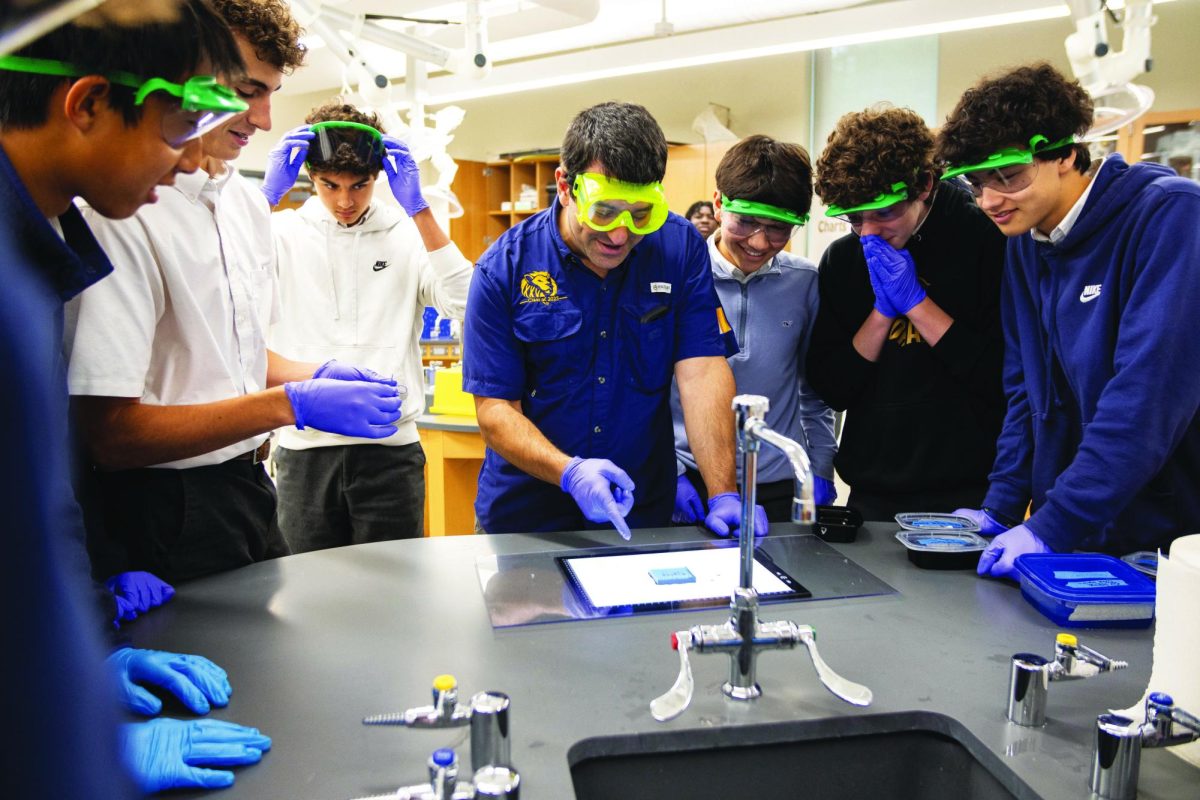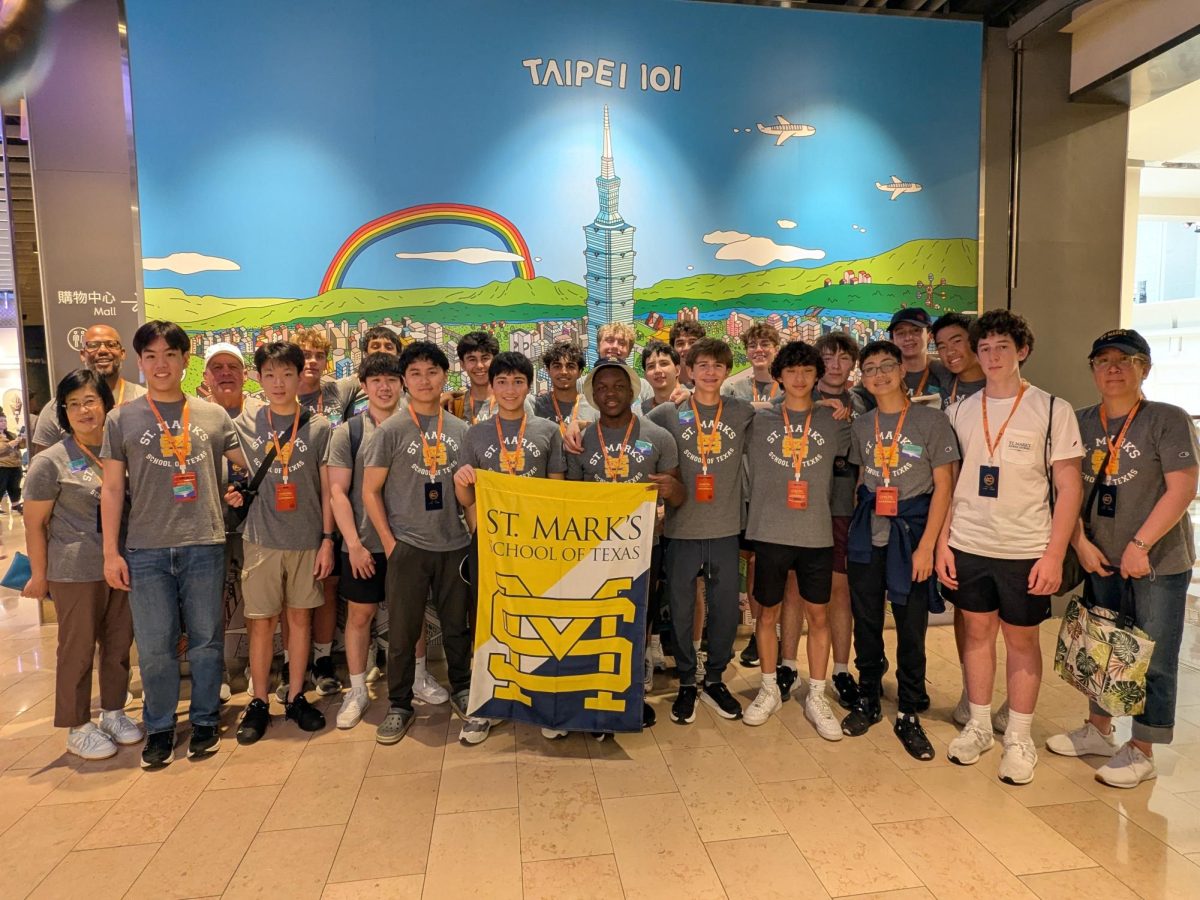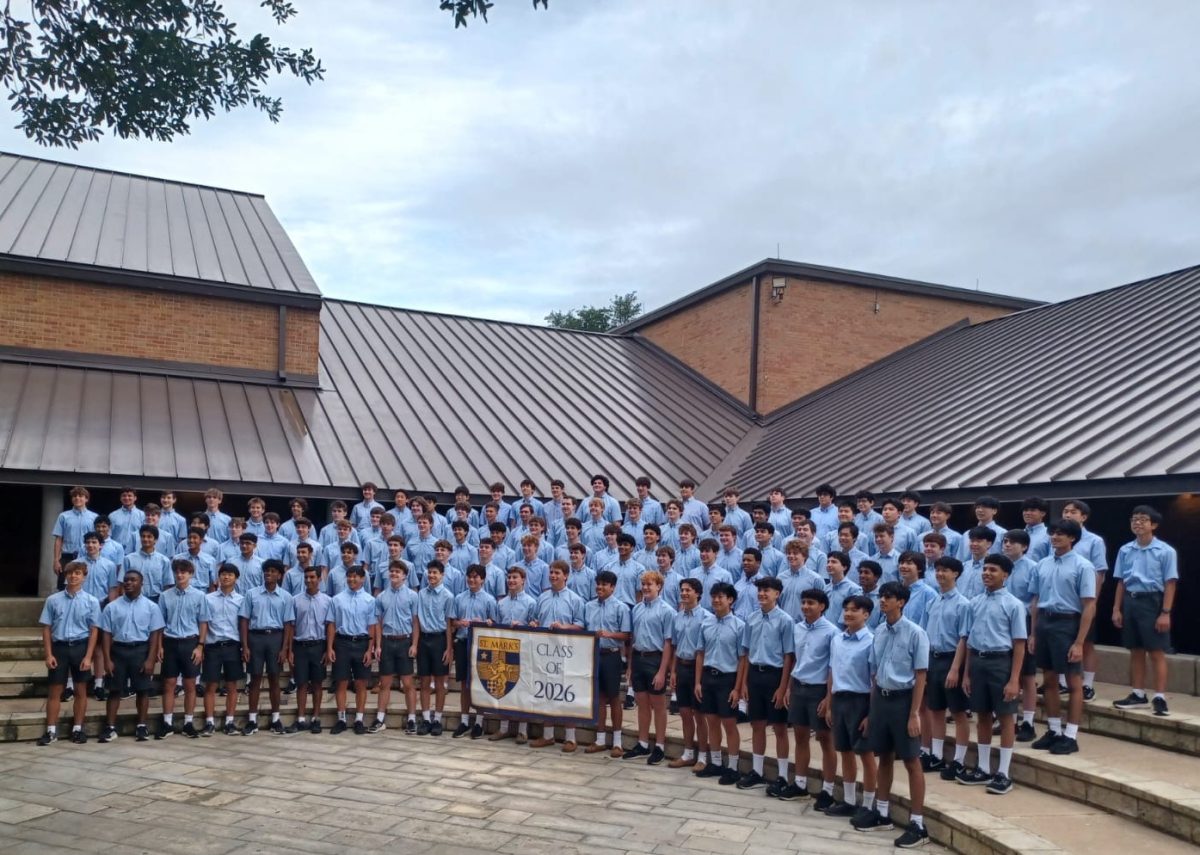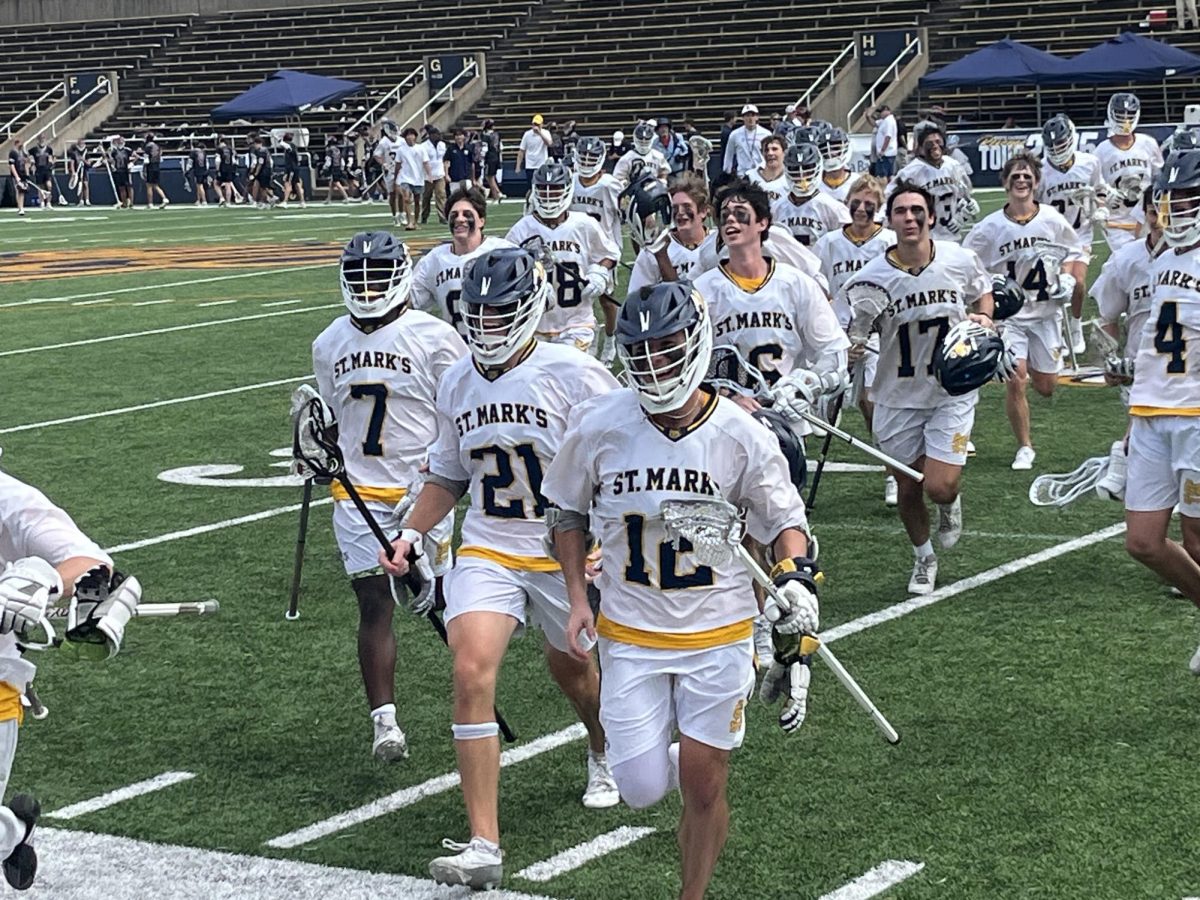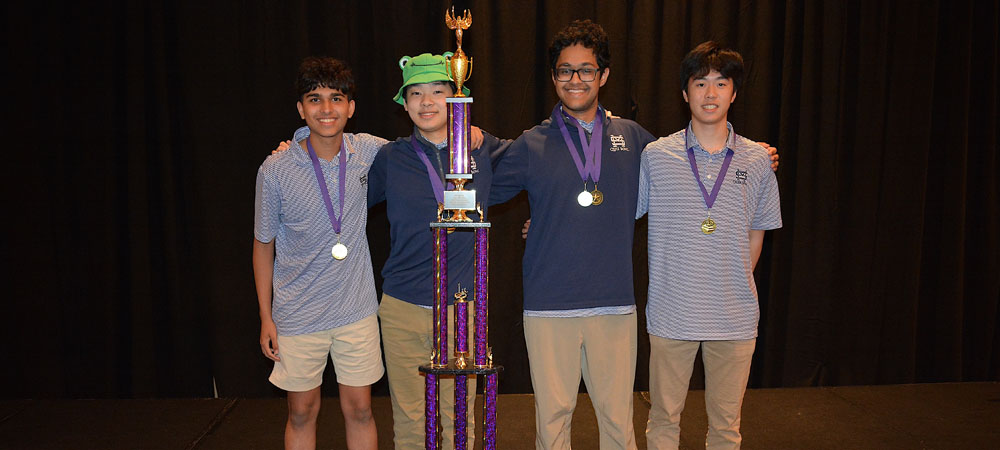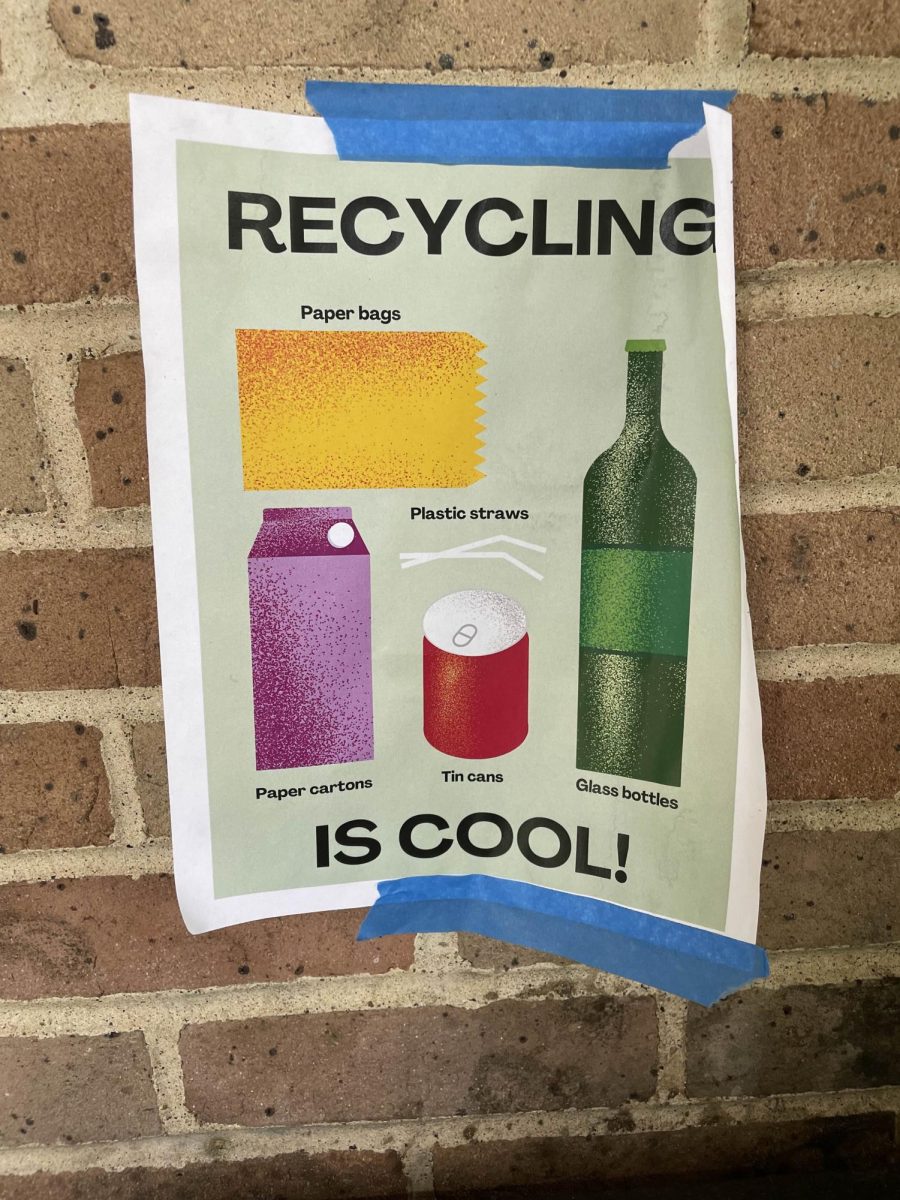The LIT Fest writing competition had Students summit their work into three categories: poetry, fiction and nonfiction.
Poetry winner – junior Carson Bosita – “The Sea Beast.”
Fiction winner – senior Nate Wilson – “Spring Cleaning”
Nonfiction winner – senior Dawson Yao – “When the Best Response Is Silence”
Poetry – The Sea Beast – Carson Bosita
They saw it from their screens—
A crimson comma,
The clause it carried
Filled with despair.
They saw it from above—
An unfathomably large white rift torn into the Earth,
A Yin-less Yang
Sent to destroy the balance of life.
As it swallowed them, they—
Mere viruses and bacteria compared to it—
Experienced the immune system of a god
Trying to extinguish them.
They heard the unending hush of a trillion sabotaging antibodies
Pulled sideways through invisible veins.
They saw wall after surging wall of white blood cells
Engulf streets and pound against doomed buildings—
There was silence.
The monster’s blue, sleepless eye,
Surrounded by swirling puffy teeth,
Dwarfing any “battleship” or “skyscraper” by orders of magnitude,
Surveyed them all with cosmic emptiness.
It glided, hungrily, uncaringly,
Across homes, towns, cities, states,
Whipping its smoky tendrils around
Like a cataclysmic carousel.
But it growled with booming thunder
At the steel towers left undigested in its wake,
At the people who would recover from its rampage
No matter how much it took from them.
The foreign land poisoned it.
Its life force poured out in torrents as it crawled further and further inward.
Further, further, further,
Smaller, smaller, smaller, until it dissipated
A wisp of its former might.
The beast of the sea will always disappear.
But it always comes back.
Maybe in a year. Maybe in a month.
Maybe in the Caribbean. Maybe in the Gulf of Mexico.
Maybe as Harvey. Maybe as Katrina.
Fiction – Nate Wilson – “Spring Cleaning”
Jacques hated spring-cleaning day. Spring was a bit of a misnomer – it usually occurred in late winter on a random day which his father always declared was “as good as it was gonna get.”
Being a good day also seemed like something his father randomly decided. A good day could be just above freezing or well into the seventies, yet it always seemed to fall on dreary Saturdays, almost exclusively without sun.
Though Jacques was already not a fan of working for hours straight, the labor involved in spring cleaning day was not the reason he hated it. Spring cleaning day stood as a monument to everything he detested about his father. His father was obsessed with cleanliness and never failed to project his fanaticism into Jacques’s life. Being reminded of the purported uncleanliness of his room was as common as being asked how his day was, and the reminder usually came first. His father would frequently point out to him how dog hair had collected underneath the sofa or how much dust had collected behind the TV cabinet. His father insisted that Jacques keep his room clean, often making detours through the house to ensure that Jacques’s floor had been swept and that his shoes had been fully put away.
His father was equally obsessed with the cleanliness of his own body, obsessing over every slightly unacceptable metric that purportedly predestined complete and utter destruction of his body. He exercised twice daily, starting his days with a lift and ending them with a run, adding in walks when he could and fifty-mile bike rides every Saturday. He adhered to some strange health diet that disallowed animal proteins or anything else that tasted good and kept a scale on the dining table so that he could weigh every gram of food he ingested. As if it were not already obvious, he also felt a need to not only repeatedly remind Jacques of these lifestyle choices he made and their benefits, but also to urge Jacques into conformity with his lifestyle every time he saw Jacques seated for more than an hour or, God forbid, Jacques eating something high in simple sugars.
Above all, his father loved his lawn. He saw it not only as a place to conduct his calisthenic routines but also as a frame to the work of art he considered his home, which derived its aesthetic value from how well-maintained it was – something he considered to be regrettably rare in current society. Every man has some hobby or fascination that absorbs his attention just as well as his wallet, and for Jacques’ father it was lawncare. Riding mowers, leaf blowers, backpack sprayers, granular spreaders, edge trimmers, round and flat shovels, landscape and dethatching rakes, nothing was a tool too expensive to be bought or too niche to be worth the investment. The lawn was kept at a perfect length and in a perpetual checkerboard pattern.
Jacques considered this to be the real reason spring cleaning never came during the spring – it needed to be done when the grass was dead and dry, for the time his father would need to expend repairing the foot traffic of the day would surely exceed the amount taken for cleaning.
And so, one unlucky Saturday in February, Jacques was awoken with thirty-minutes’ notice before they started to clean. It began as a standard spring-cleaning day. Jacques first dusted every horizontal surface in the house, starting up high with fan blades and bookshelves and arriving at coffee tables an hour later. He was then sent to dust the baseboards of the house, which he did bent over until his back hurt, at which point he scooted on his butt along the walls for the remainder of the task. He then vacuumed and mopped the entire house, making sure to never mop himself inside a room and to change the water after every ten strokes. After a mountain of the mundane, it was time to transition to the outside chores.
Nonfiction – Dawson Yao – “When the Best Response Is Silence”
Towards the end of my junior year, I caught wind of a story from one of the sophomores working under me in the journalism program. The story was of the sudden death of one of our school’s most beloved: former cafeteria worker Steve “Hollywood” Walker, a man I had never met. There was no way for me to walk through his lunch line, excitedly high-fiving him on the way to my meal. There was no way for me to see first-hand his unparalleled dedication to the school that was his home. There was no way for me to be in his presence. Yet, through people who knew him, I was determined to try to do so anyway.
To say that what followed was an emotional rollercoaster would be an understatement. Though I acted merely as a reporter in a scene of remembrance, I would nevertheless feel as though I was mourning myself. My first interviewee for the story was Mr. Ron Turner, Sr., a hard-nosed former football coach whose rough exterior had withstood the test of time itself. Rarely smiling, his facial structure rested in what I always perceived to be a “mean-mug” expression. As the interview date drew near, I grew increasingly nervous at the task ahead of me. I was afraid of every possibility, and I envisioned that he would question my right to write about his dear friend, a man I had never even known in the first place. What if he pushes back? What if he refuses? What if he doesn’t speak to me?
As I posed my first question, the same thoughts from a week of anticipation flashed through my mind in a whirlwind. When the last word left my mouth, I sat nervously in my seat. A long pause, and I already had begun to crumble. But as his words flowed in response to my questions, I caught a glimpse of the true Ron Turner. With every word he spoke, fresh cracks lined his rough, armored exterior. Inside a battle-tested shell of grit was a man: a man who was simply broken by the death of Hollywood: a coworker, a mentor, and ultimately, a friend.
As the interview progressed, my confidence grew. My questions probed deeper and deeper as I dug at the aspects of their relationship that made it special. The interview turned into a conversation. His posture also relaxed with mine, and before I knew it, he was opening up about stories that he might not have told to anyone anywhere else. All the jokes they’d told, all the challenges they’d faced, and all the memories they’d shared came pouring out in what was a massive exhale for Turner. I learned of the great man Hollywood was from his day-to-day interactions with teachers and students to his unwavering dedication to the job he did best. A gentle six-foot-two man who barely knew how to sign his name, Hollywood took it upon himself to work, walking half a mile to school each day with a bad leg, taking care of his family, and even learning as an adult to read and write – essentially from scratch. Even when the pandemic struck, his chop-wood-carry-water attitude never wavered but grew ever stronger.
Then, precisely an hour into the interview, I asked, “What was it like, on the day he died?”
Once again, a pause set in. The nerves from before came back, and I was left hoping and praying that he would answer my question nicely. But before the panic crept in, his shell broke completely. His voice cracked, and he broke down. Finally, tears streamed down his cheeks. It seemed years of pent-up emotion finally broke down the floodgates. Through watery eyes and carefully chosen words, I learned of the day it happened, exactly as the events played out. But as I listened, one thought ran through my mind: What am I supposed to do when someone so resilient cries in front of me?
I’ve faced situations like these before. In the past, it’s always been the same: “What do I say?” or “Why does it always have to be so awkward?” Every time, from watching friends mourn loved ones to watching family members break down at gravestones, I’ve sat idly by, unsure of what words to say or how to show empathy. But this time was different. This time, as I watched the man cry, I realized that repeating questions or offering my condolences wasn’t going to help. So, instead of inputting my thoughts, I let the man speak. I spoke no words, yet the conversation flowed freely. All I did was sit quietly and try to listen to the many memories of Hollywood he held so dearly in his heart.
When conversations become tear-filled, witnesses often have difficult times finding the right things to do. But, sometimes, the best response is silence. Sometimes, all the mourner wants is for someone to take in the moment with them and just listen to what they have to share.




